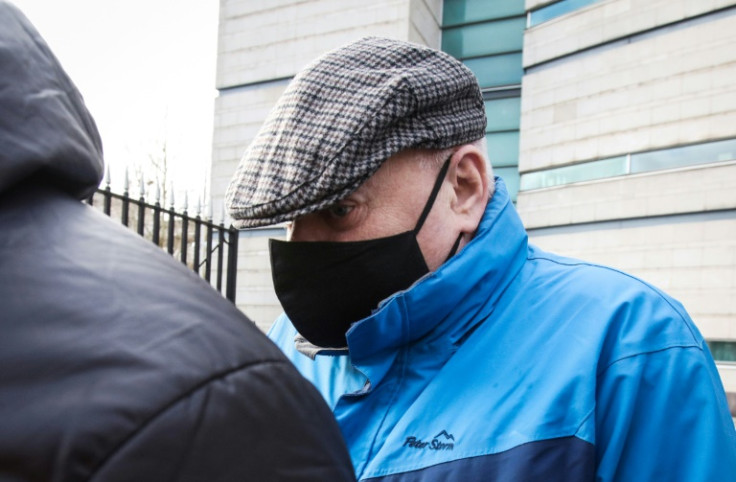British Ex-soldier Avoids Jail Over N.Ireland Killing

A former British soldier on Thursday avoided a prison sentence over the killing of a man at a border checkpoint during the period of violence in Northern Ireland known as "The Troubles".
David Holden, 53, received a three-year suspended sentence at a Belfast court after being convicted of manslaughter in November over the 1988 killing of Aidan McAnespie.
The conviction was the first successful prosecution of former UK military personnel for historic offences during the decades-spanning conflict in Northern Ireland.
However, further such cases could be blocked under controversial draft legislation unveiled by the UK government in London last year.
During the sentencing, judge John O'Hara drew attention to the "devastating effect" McAnespie's death had had on his family.
"When I consider the sentence, I bear in mind everything which is put before me by counsel and the McAnespie family," he said.
"The defendant gave a dishonest explanation to the police and then to the court, to some limited degree that is an aggravating feature," the judge added.
"I have no doubt this was made worse by the family's sense of injustice that Mr Holden was not brought to trial at the time," O'Hara said.
"This is something the family shares with far too many other families in our society who have not seen anyone held to account for all manner of killings, bombings and shootings," he added.
McAnespie was shot in the back and killed in Aughnacloy in County Tyrone on his way to a sports club.
Holden, who was 18 years-old at the time, admitted the shooting but said his gun had fired by accident because his hands were wet.
The judge retold statements from the family describing how Aidan McAnespie's mother had, every night, walked past the checkpoint where her son had been killed "in tears saying the rosary", a Catholic prayer.
Holden arrived at the court Thursday wearing a dark suit, a flat cap with the brim pulled low to obscure his face and a dark face mask.
Responding to the decision, Aidan McAnespie's brother Sean McAnespie said the non-custodial sentence was "disappointing but the most important point is that David Holden was found guilty".
Sean McAnespie said his family had not looked for a "pound of flesh", but rather "truth and justice".
"David Holden could have given an honest account of what happened that day but didn't," he said, explaining his brother had faced "extensive harassment" from the security services.
"Not a day passes when we don't miss Aidan," said Sean McAnespie.
Spokesman for the Northern Ireland Veterans Movement Paul Young called the sentence "extremely harsh".
Comparing Holden's sentence to the commuted terms for former Troubles combatants as part of the 1998 Good Friday Agreement, which ended the Troubles, Young said there was "clearly a disparity".
"It is a disgrace and should never have happened," he added.
Prosecutions relating to The Troubles remain deeply divisive in Northern Ireland where the legacy of conflict continues to cast a long shadow.
In May last year, the government in London introduced controversial legislation in an attempt to draw a line under more than 1,000 disputed killings.
The proposed Troubles legacy bill is opposed by the families of victims and has faced fierce criticism from both sides of Northern Ireland's pro-UK unionist and pro-Ireland nationalist divide.
Backed by veterans' groups, the bill provides an effective amnesty for those suspected of killings during the conflict if they agree to co-operate with a new truth recovery body.
The draft law, currently being debated in parliament, would also prohibit future civil cases and inquests related to Troubles crimes.
© Copyright AFP 2024. All rights reserved.





















